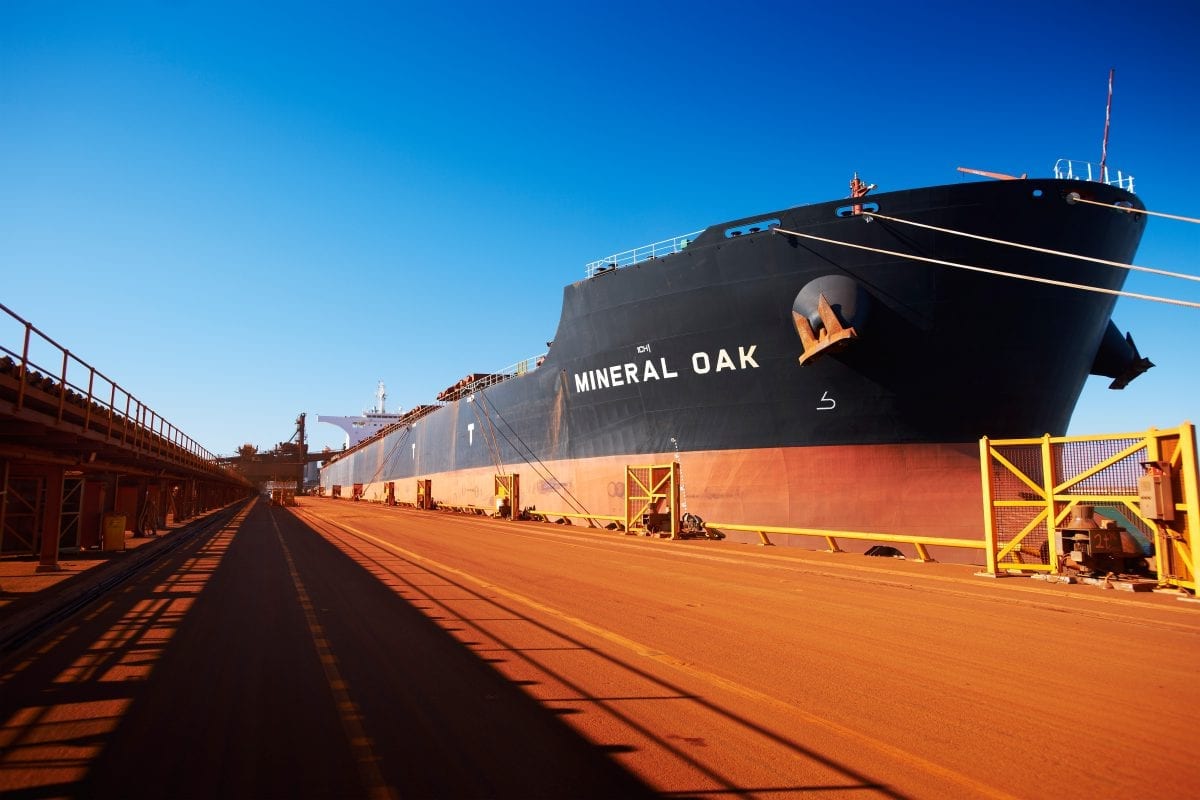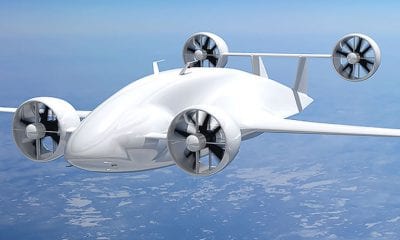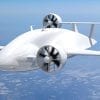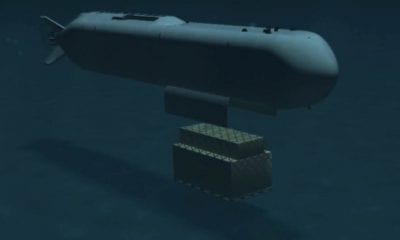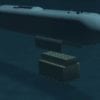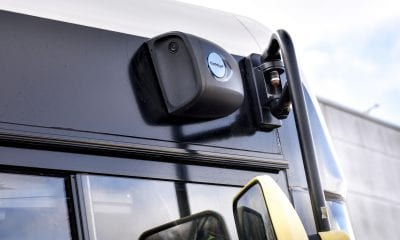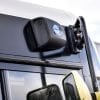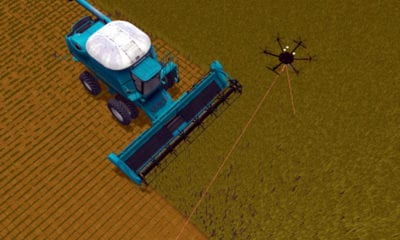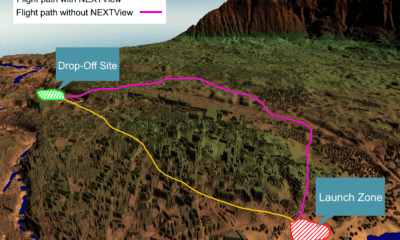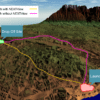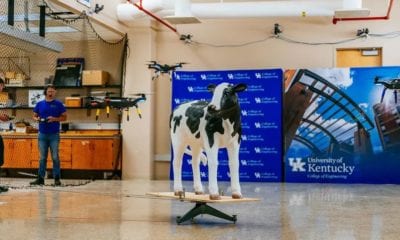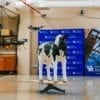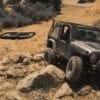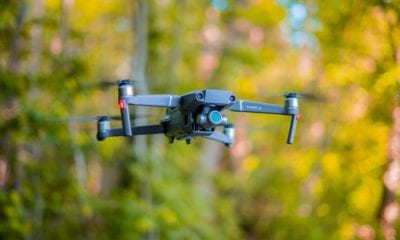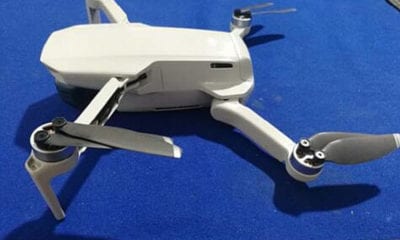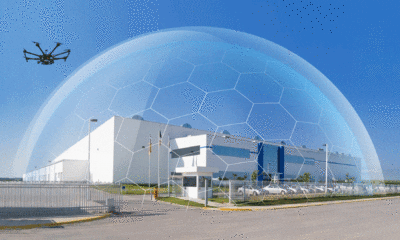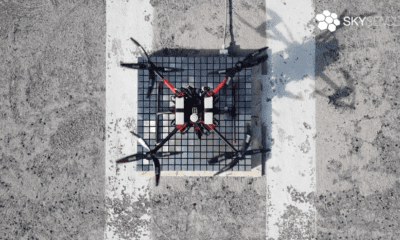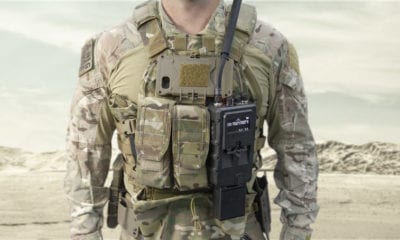Industry
Drones for Inspections Officially Deployed at BHP Port Operations
BHP, formerly known as BHP Billiton, is in the drone news lately for trialing the use of drones at its port operations. As the company revealed, their plans are to deploy small and unmanned aerial vehicles which will take draft readings as well as inspect the holds on giant bunkers as they wait to load rather than dispatching human inspectors for the purpose.
The Marketing VP of BHP Confirms the News
With this, BHP proves another case where drone technology is seen as useful. As the VP of marketing freight at the company, Rashpal Bhatti confirmed, the information collected by drones will one day feed into the BHP-supplied labels that are used by bulker captains as BHP terminals.
Bhatti confidently said that all of the company’s chartered ships now “receive a tablet when they berth, where they can read the tension of the morning line which has major safety benefits.” He also noted that while this project is “futuristic” it is still in the direction in which the company is going.
Right now, BHP charters about 1,500 dry bulk voyages for 300 million tonnes of cargo each year, giving it an outsize position in the market. With a new system that uses drones for inspection, the volume of the business can be expanded and the inspection times can be drastically reduced, which would translate into large savings.
Bhatti said:
“The hold inspection process involves ships which have five to nine holds which a person checks by climbing down ladders. The inspector has to be physically fit, use fall protection, and carry [an oxygen meter] to make sure there is enough air in the hold. And it takes a lot of time.”
He also pointed out to drone-mounted sensors as a way of detecting things that humans could not, such as “cracks or other parameters that our naked eye cannot see.”
Drones Will be Used at Coal Mines In Queensland
The major mining company will use drones in its coal mines in Queensland such as the Goonyella – all in order to check the areas during blasting setups and document the fumes that they are generating.
According to some estimates, this may save BHP around $5 million per year when compared with the equivalent plane costs. The company is also prepared to use drones for inspection of tall areas such as cranes and towers.
Therefore, marine drones can be used for a multitude of tasks in an ocean freight capacity such as hold inspections where they could check the water position of rudders as well as draft readings.
Bhatti confirmed this and said:
“The hold inspection process involves ships which have five to nine holds which a person checks by climbing down ladders.The inspector has to be physically fit, use fall protection, and carry a parrot (oxygen meter) to make sure there is enough air in the hold. And it takes a lot of time. With drones, we can fly them into a hold and capture 4K images, but also infra-red, and other types of cameras that can show cracks or other specific parameters that cannot be seen with the naked eye.’’
With this, BHP hopes that the drone initiative will also create a “holistic technological package” and deliver several types of information for the company.
Drone-Based Inspections are Nothing New
Trialed by class societies as well as third-party contractors, drone-based inspections are nothing new, especially in the offshore field. They are proven to simplify the process of checking on complex rig structures. One example of that is the recent deployment of drones for safety and security monitoring by Maersk’s APM Terminals division. According to Maersk, the trial resulted with a massive potential for a technology like this to be deployed in the future.
BHP, on the other hand, is not using drones for the first time. It actually has a vast experience with using drones in its shoreside operations. From aerial drones that monitor the coal mines in Queensland, Australia – to traffic monitoring and stockpile management, BHP also deploys drones in its oil and gas processing facilities for inspections.
Aside from drones, the company’s focus are efficient solutions in the maritime industry. Bhatti confirmed that by stating:
“Safe and efficient autonomous vessels carrying BHP cargo, powered by BHP [natural] gas, is our vision for the future of dry bulk shipping. We believe that future could manifest within a decade.”

